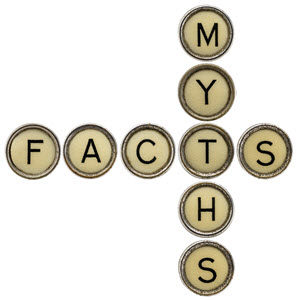A Look at the Myths and Realities of Common Law Marriage
Common law marriage no longer exists in PA.
We receive many questions regarding common law marriage and whether common law marriage exists in Pennsylvania. A common misconception is that if a man and woman live together for a certain period of time, then the parties are in a common law marriage. This notion is incorrect. We hope this blog will help answer your questions about common law marriage in Pennsylvania.
What is common law marriage?
Unlike conventional marriage, common law marriage does not require an officiant, witnesses or marriage license to establish that the parties are married. To establish a common law marriage, one must prove that both spouses have (1) capacity to be married and (2) the present intent to enter into marriage. Once established, the common law spouses have the same rights as any married couple and must file for divorce if they wish to end the marriage.
Does Pennsylvania recognize common law marriage?
Common law marriage has been abolished since January 1, 2005. This means that no common law marriage entered into after January 1, 2005 is recognized by Pennsylvania. However, the statute is clear that any common law marriage entered into prior to January 1, 2005 will be recognized.
Currently, only nine states and the District of Columbia recognize common-law marriages:
- Alabama
- Colorado
- Kansas
- Rhode Island
- South Carolina
- Iowa
- Montana
- Oklahoma
- Texas
In addition, like Pennsylvania, four other states recognize common law marriage for those established before a certain date:
- Georgia
- Idaho
- Ohio
- Oklahoma
If you entered into a valid common law marriage in one of the aforementioned jurisdictions, Pennsylvania will recognize your common law marriage for purposes of divorce.
How do I prove common law marriage?
As a matter of law, a common law marriage is disfavored. The burden of proving a common law marriage is on the party alleging the marriage and he or she must prove the existence of common law marriage by “clear and convincing evidence.” As stated above, a common law marriage must be entered into before January 1, 2005 to be recognized.
Capacity, the first element in establishing the existence of a common law marriage, refers to a party’s legal power or right to marry. To establish capacity in Pennsylvania, one must generally prove that the parties:
- are of the opposite sex;
- are unmarried; and
- are at least 18 years old.
To establish the second element, “the present intent to enter into marriage”, one must prove that the spouses exchanged words in the present tense, spoken with the specific purpose of creating a legal relationship of husband and wife. It does not require any specific form of words, and all that is essential is proof of an agreement to enter into the legal relationship of marriage at the present time.
In addition, it is helpful if one has evidence of the existence of a common law marriage, including by not limited to, proof that the parties lived together, testimony from friends, family and community members that the parties held themselves out as husband and wife, tax returns for the parties reflecting “married” filing status, beneficiary designations on life insurance policies, joint credit applications, etc.
What if I have additional questions about common law marriage in Pennsylvania?
If you have questions about common law marriage in Pennsylvania, especially if you live in Harrisburg, Hershey, Mechanicsburg or Central Pennsylvania, please contact Attorney Alexis Miloszewski and Attorney Jessica Smith by calling (717) 883-5671 or emailing FamilyLaw@JSDC.com.


